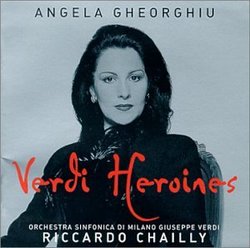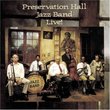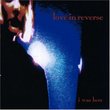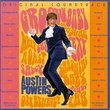| All Artists: Riccardo Chailly, Laura Polverelli, Tizana Tramonti, Milan Giuseppe Verdi Orchestra, Giuseppe Verdi Symphony Orchestra of Milan, Angela Gheorghiu Title: Verdi Heroines Members Wishing: 0 Total Copies: 1 Label: Decca Import Release Date: 6/13/2000 Album Type: Import Genres: Alternative Rock, Rock, Classical Style: Opera & Classical Vocal Number of Discs: 1 SwapaCD Credits: 1 UPC: 028946695227 |
Search - Riccardo Chailly, Laura Polverelli, Tizana Tramonti :: Verdi Heroines
 | Riccardo Chailly, Laura Polverelli, Tizana Tramonti Verdi Heroines Genres: Alternative Rock, Rock, Classical
Romanian soprano Angela Gheorghiu is at a significant crossroads for a singer: past the heady days of her sudden, youthful stardom in the mid-1990s initiated by her legendary Covent Garden La Traviata, but still forging a ... more » ![header=[] body=[This CD is available to be requested as disc only.]](/images/attributes/disc.png?v=4eeb5dd5) ![header=[] body=[This CD is available to be requested with the disc and back insert.]](/images/attributes/disc_back.png?v=4eeb5dd5) ![header=[] body=[This CD is available to be requested with the disc and front insert.]](/images/attributes/disc_front.png?v=4eeb5dd5) ![header=[] body=[This CD is available to be requested with the disc, front and back inserts.]](/images/attributes/disc_front_back.png?v=4eeb5dd5) |
Larger Image |
CD DetailsSynopsis
Amazon.com Romanian soprano Angela Gheorghiu is at a significant crossroads for a singer: past the heady days of her sudden, youthful stardom in the mid-1990s initiated by her legendary Covent Garden La Traviata, but still forging a mature identity, both vocally and interpretively. The results of this in-betweenness can be frustrating, as Gheorghiu at this point clearly doesn't seem light enough for Gilda's "Caro nome" in Rigoletto (the weakest cut on this recital), but still needs to develop the heavier sound and heft needed for such Verdi heroines as Aida. That said, Gheorghiu's attempt to position herself at the head of the new generation of Verdi sopranos has a lot going for it--most important, the mesmerizing quality of her uniquely dusky timbre and the conviction of her vocal acting (it's even able to come across on CD). Just listen to how she can encode unhappiness in her phrasing--a prerequisite for a Verdi heroine--as Aida, or transient but intensely sought peace as Leonora, or, in the longest scèna here, as an appealingly multilayered Desdemona (quite possibly the recital's best cut). There's also the exciting polarity of Gheorghiu's leaps from chest voice to a high perch (at the end of the lengthy Don Carlo scèna) to signify the traversal of as many emotions, though she practically throws away what should be a killer moment with her disappointing attack on the high pianissimo at the end of "Morro, Ma Prima in Grazia.". The chemistry between Gheorghiu and conductor Riccardo Chailly that was so remarkable on their Bohème is even more powerful here, and Chailly's ear for detail enables the arias to unfold against a canvas of vibrant colors; the symphonic dimension he gives to the orchestral prologues (especially in the Don Carlo and Otello scenes) adds depth and perspective. --Thomas May Similarly Requested CDs
|
CD ReviewsAmong the best recorded renditions of these arias Christopher C. Wilson | Virginia, USA | 06/16/2000 (5 out of 5 stars) "This splendid new recital disc, along with Gheorghiu's recent complete recordings of LA BOHEME and WERTHER, reveal that she possesses one of the most ravishingly beautiful, expressive, and versatile soprano voices in existence today. Though some may insist that she is a lyric soprano, who should not be treading into the demanding roles of Verdi's middle and later periods, Gheorghiu easily proves that she is capable of rising to the challenge, presenting arias that are technically secure and full of interpretive insight. In the selections from I VESPRI SICILIANI, RIGOLETTO, and IL TROVATORE, her trills, adept coloratura, secure top, and lovely rounded tone evoke associations with Sutherland. Her high C in "O patria mia", a problem spot for many sopranos, is full and gorgeous, without any hint of strain. In "Pace, pace," she shows that there are significant reserves of power behind her lovely voice. Each character is individualized, illuminated by careful attention to text.It is no longer necessary to lament the absence of Verdian sopranos. With Angela Gheorghiu, Deborah Voigt, Maria Guleghina, and Sondra Radvanovsky performing today, there are exceptional voices capable of singing Verdi's demanding female roles. Gheorghiu is an intelligent artist -- she won't sing Aida right away in the opera house and risk damaging her voice; but she would be a splendid Desedmona, Gilda, or the Trovatore Leonora right now. Let's hope that impresarios like Joe Volpe, at the Met, take notice and offer her some meaty roles beyond just Liu and Mimi. I highly recommend this disc -- along with Fleming and Bartoli, Gheorghiu is undoubtedly one of the great artists of our time." A Spinto? Probably not, a Verdian? Maybe. James Walters | Seattle, WA USA | 06/20/2000 (5 out of 5 stars) "As I listened to this collection of arias I found myself thinking on Leontyne Price, and Renata Tebaldi. Gheorghiu brought back rememberances of their perfomances of these pieces. I don't believe that Gheorghiu is a true Spinto soprano like Price, but the richness in her voice leads one to believe she is more than just a Lyric Soprano. Like Tebaldi who also started her carrer singing the basic lyric repetoire, and I'm happy to hear her voice develop into a larger Full Lyric sound. While I don't think she would make the best Aida today, I hear in her voice that she can mature into this role, as Tebaldi did. I would welcome any Verdi roles she decides to take on. From the recorded evidence on this disc I believe that "Il Trovatore, and Don Carlo should be her next Verdi operas, I Vespri would also be welcome. I'm glad that in Gheorghiu we have another soprano dedicated to Verdi (and who can pull it off), now if we can just get a tenor whos up to it, and can take the mantle from Domingo." Controversial And Undeniably Breathtaking Aurora Vronsky | USA | 06/28/2000 (5 out of 5 stars) "Angela Gheorghiu possesses one of the most exquisite operatic voices of today. Her unique dusky to sugary timbre represents one of the most individual as well as most breathtakingly beautiful of sopranos. Not only does she have a prolific voice, but also an electrifying stage presence. Being a conservatory-bound opera major (and a lyric soprano) myself, I am a big fan of Angela and anticipated the release of this disc very much. At first I was somewhat skeptical of a full lyric soprano such as Angela Gheorghiu attempting such heavyweight roles.However,when I listened to this CD, I was pleasantly surprised. Ms. Gheorghiu handles the massive challenge of aquiring the ultimate in Verdian style extremely well. While her voice may not possess the heft that previous exponents of this repertoire have traditionally had; she certainly possesses a sensual duskiness which transends Verdi's superhuman phrases quite effectively. And the sheer drama, the passion is there. Angela brings to life each individual heroine and makes them truly feel like a living person. While each portrayal is unique and special, I feel the strongest tracks on the CD are "Merce, Dilette Amiche" I VESPRI SICILIANI, "Che Piu T'arresti...Tacea la Notte Placida....Di Tale Amor" IL TROVATORE, and "Pace, Pace Mio Dio!" LA FORZA DEL DESTINO, (the piece which she performed at the Tucker gala) . These are most prominently reminiscent of her Violetta-----rich in flawless techinal brilliance and exceptional passionate in complete genius of interpretation. I look for here Leonora of IL TROVATORE, particularly, to be the next role which she makes her own and takes the world by storm with. A truly remarkable and surprising performance. We must not be too quick to catorgorize this exceptional artist before we witness her astouding versatility and artistry. Afterall, look what Maria Callas, a heavy dramatic did for the role of Lucia. And did not not Verdi declare the light coloratura of Adelina Patti to be one of his favorite Aidas? One must not limit the possibilities of what an accomplished artist can bring to a masterpiece. An amazing recording----you are in for a treat."
|

 Track Listings (9) - Disc #1
Track Listings (9) - Disc #1








